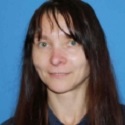Please contact us at (812) 855-0829 or idah@indiana.edu to obtain information contained in the documents below in an accessible format.
2014-2015 HASTAC Scholars
Lesley Duffield
MFA Candidate
Hope School of Fine Arts
Project: Aleutian Pribilof Islands Oral History Project
The Cultural Heritage Department at the Aleutian Pribilof Island Association (APIA) in Anchorage, Alaska is interested in partnering with me as a concept development resource in the building of a comprehensive oral history and virtual libraries project. They are seeking a digital artist specializing in the humanities to aid in the development of a remote kiosk or some form of a navigable digital culture repository for dispersed communities in need of native language resources.
This proposed digital education and remote outreach program is intended to extend the range of the center’s cultural heritage resources to remote communities whose native folkways and languages are at risk of disappearing. As these communities in the Aleutian and Pribilof Islands continue to adapt to the demands of western economic, social, and cultural practices, the preservation of native identity, folklore, and linguistic heritage are of vital importance.
Currently, the Cultural Heritage Department at APIA is the sole resource for regional historical records including census data, historical photographs, archaeological data, and all language resources for the Aleut language, Unangam Tunuu. With my interest in digital creative practices and ethnography, I could benefit from the quality of scholarly exchange and insight from other HASTAC scholars to bring this project closer to the communities that can benefit the most.
Richard Higgins
MLIS Student
Digital Humanities Specialist for Research Technologies at IU, School of Informatics and Computing
Project: Reading and Authorship in Anglo-American Working-Class Autobiographies, 1830-1920
This project will extend the work I did for a Ph.D. dissertation completed in 2010, entitled “Feeling Like a Clerk: The Emotional Economy of the Lower Middle Class in Dickens, Gissing, and Wells.” My research for the dissertation focused on representions of the working- and lower middle-class in nineteenth- and early twentieth-century Britain, as well as working- and lower middle-class authorship. Due to constraints on archival material, my dissertation paid the most attention to well-known authors from the working classes who also wrote fiction about being, or having been, working class. Now that I am working in the adjacent fields of Digital Humanities and Information Science, and working toward an M.L.I.S. degree at Indiana University, I want to return to one of the original goals of my Ph.D. project: working-class authorship and autobiography. I am most interested in using text analysis and topic modeling to identify two features in working-class autobiographies: 1) reading patterns and influences and 2) social network connections among working-class authors.
Courtney Mitchel
Ph.D. Candidate
American Studies
Project: Unfeeling Humanism: Embodied and Aesthetic Subjectivies on the Margins
Courtney Mitchel’s dissertation project seeks to better understand how those marginalized by contemporary structures of power find alternative means to express their humanity. She is especially interested in the aesthetic realm, including fashion, music, dance, and digital arts. One of her dissertation chapters focuses on Mark Aguhar, a trans, queer, Filipina-American internet artist who utilized the relational networks of the internet to challenge racism, sexism, homophobia and expand our very definitions of what it means to be human.
Olga Scrivner
PhD Student
French Linguistics and Computational Linguistics
Project: Olga is doing a dual PhD in French Linguistics and Computational Linguistics. She currently writing her thesis on a topic that bridges both areas of research. Her thesis addresses the word order change from Latin to Old French. In her thesis, she will show that the combination of corpus linguistics, variationist analysis, probabilistic and analytical visualization methods are an ideal combination for approaching the topic. I.e., she is developing novel methodology for a traditional linguistic topic, including techniques that she knows from corpus linguistics and computational linguistics.
In addition to her thesis, Olga is also the main contributor to a project on a corpus for Old Occitan. Olga used scans of the "Roman de Flamenca", an Old Occitan manuscript, and created a digital edition, which is annotated and searchable on different linguistic levels, and which can be accessed from http://cl.indiana.edu/~obscrivn/docs/ParallelCorpusRomandeFlamenca2014.pdf. For this project, Olga did not only learn how to apply and adapt technology form computational linguistics, but also set up the web presence of the corpus by herself.
Joshua Sites
MA student
Telecommunications
Project:Flow and Generative Music Systems
Josh's uses experimental social science to see if generative music systems can decrease inhibitors to flow in video games. A generative music systems is a series of rules that takes non-musical input to create a musical output in real time. Flow is a theory of psychology proposed by Csíkszentmihályi that describes a state of pleasurable and extreme focus with a loss of sense of self and time. My idea is that traditional music soundtracks in video games do not always reflect the pacing, mood, or setting of each moment while playing a video game. This incongruity distracts the player and limits their ability to experience flow. Since generative music systems create music in real time based off of data generated by the player interacting with the game, generative music systems should match the gameplay better than traditional systems and be less distracting or incongruent. And due to that, the player should experience more states of flow.

